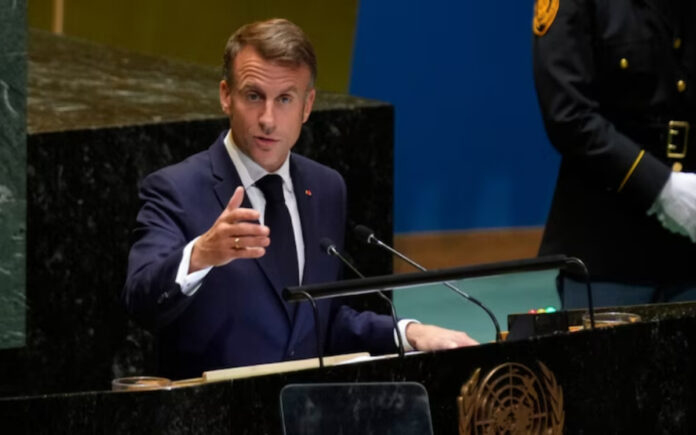New York: In a significant boost to India’s long-standing efforts to secure a permanent seat on the United Nations Security Council (UNSC), French President Emmanuel Macron announced his full support for expanding the body to better reflect global realities.
Speaking at the United Nations General Assembly, Macron declared, “France is in favour of expanding the Security Council. Germany, Japan, India, and Brazil should become permanent members, as well as two representatives from Africa.” He further emphasized that while reform is essential, it would not be sufficient on its own. Macron called for revising the UNSC’s working methods, limiting the veto power in cases of mass atrocities, and focusing on peacekeeping operations. “The time has come to regain efficiency to act better on the ground,” he concluded.
Diplomatic Push for Reform
Macron’s remarks arrive at a time when global conflicts, such as the war in Ukraine and the Gaza crisis, have highlighted the UNSC’s limitations. Many member states, including India, argue that the Council’s current structure is outdated and unable to address today’s geopolitical complexities effectively. The deadlock in addressing major global crises has amplified calls for reform, with many voices, including India’s External Affairs Minister S. Jaishankar, advocating for a more inclusive and representative Council.
India’s campaign for a permanent seat has gathered momentum in recent years, particularly with support from powerful alliances like the Quad. The joint statement from the Quad nations—comprising the United States, India, Japan, and Australia—reaffirmed the need to reform the UNSC to reflect the changing world order.
Growing Support for India’s Inclusion
In separate discussions, U.S. President Joe Biden expressed his support for India’s bid during bilateral talks with Prime Minister Narendra Modi, recognizing India’s contributions to international peacekeeping and its role as the world’s largest democracy.
U.S. Secretary of State Antony Blinken echoed this sentiment during a recent summit at the UN General Assembly. He emphasized that India, alongside Japan and Germany, should be included in a reformed UNSC, noting that expanding the Council’s permanent membership would enhance its legitimacy and functionality.
The Old Order and Calls for Change
Currently, the UNSC has five permanent members—the United States, China, France, Russia, and the United Kingdom—who hold veto powers. In addition, there are ten non-permanent members elected for two-year terms. While the majority of permanent members, with the exception of China, have supported some form of expansion, the current structure has been criticized as outdated and unreflective of modern geopolitical dynamics. The UN’s membership has grown from approximately 50 countries at its founding to 193 today, with many calling for more equitable representation, particularly for countries in Africa, Asia, and Latin America.
‘UN Remains a Prisoner of the Past’: Jaishankar
During the 2nd G20 Foreign Ministers’ Meeting, held alongside the 79th session of the UNGA, Indian External Affairs Minister S. Jaishankar described the United Nations as a “prisoner of the past.” He argued that the UN must evolve alongside the world to maintain its relevance.
“The areas of global governance reform… First is the reform of the UN and its subsidiary bodies. The world has evolved into a smart, interconnected, and multipolar arena, and its members have increased fourfold since UN’s inception. Yet, the UN remains a prisoner of the past. As a result, the UN Security Council struggles to fulfil its mandate of maintaining international peace and stability, undermining its effectiveness and credibility,” Jaishankar stated.
He further emphasized the need for proper representation, particularly for the Global South. “Without reforms, including expansion in both categories of UNSC membership, its lack of effectiveness will only continue. Asia, Africa, and Latin America—the Global South—must be given their legitimate voice. Real change needs to happen, and happen fast.”
Conclusion
As momentum builds for UNSC reform, Macron’s endorsement of India’s bid for a permanent seat underscores the global recognition of India’s growing role in international affairs. However, while support from key global leaders continues to grow, significant challenges remain, including gaining consensus among all UNSC permanent members.



